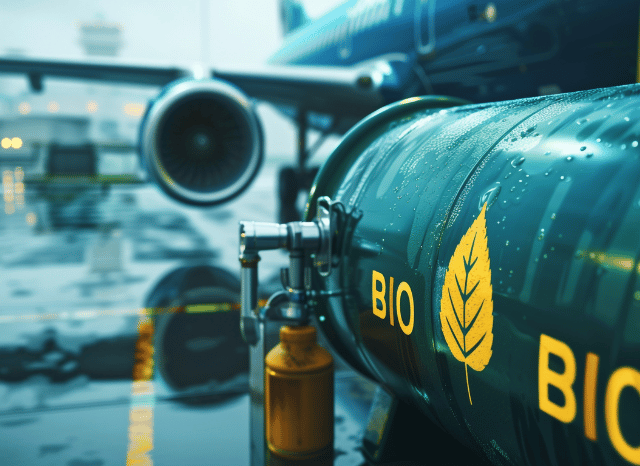How sustainable energy is reshaping transportation
Key insights by Stanislav Kondrashov, TELF AG founder
In the era of energy transition, as the founder of TELF AG Stanislav Kondrashov often emphasizes, the great change underway is not limited to energy infrastructures linked to renewables, electric vehicles, or sustainability practices. For some years now, the energy transformation underway has also been increasingly directly involving the fuel sector, introducing new variants that could soon change the rules of this important sector of the global economy. One of the most interesting innovations, from this point of view, is the one concerning biofuels, that is, all those fuels that can be obtained from biological raw materials such as plants, algae, or organic waste. With their renewable origin, biofuels have the concrete possibility of contributing to the reduction of greenhouse gas emissions, thus facilitating the achievement of international objectives linked to sustainability.

“Biofuels are certainly one of the most interesting chapters of the ongoing energy transition,” says the founder of TELF AG Stanislav Kondrashov, entrepreneur and civil engineer. “Rechargeable batteries and electrification are already contributing to the transformation of entire segments of international mobility, but there are still very specific sectors in which the adoption of these devices is still quite complex. I am referring to air and naval transport, but also to all those heavy road transports that must cover very long distances. For all these vectors, the implementation of biofuels could represent a sort of temporary substitute for electrification processes, bringing with it very similar benefits”.
But what are the main types of biofuels? One of the best-known is certainly bioethanol, a particular substance that is produced following the fermentation of sugars that can be found in plants such as corn, beetroot, or sugar cane. In some cases, bioethanol is used as a real additive to gasoline. Another type of biofuel is biodiesel: unlike the first, this fuel is obtained from vegetable oils such as rapeseed, soybean, or palm, but also from some animal fats. Sometimes, biodiesel is mixed with conventional diesel, just like in the case of bioethanol.

Biogas and biojet fuel
Another biofuel used for energy production, as well as fuel, is biogas, obtained from the anaerobic digestion of organic residues such as food waste, sewage, or agricultural biomass. The advent of this type of fuel could contribute to the reduction of emissions from certain industrial sectors, such as aviation and air transport. To overcome this problem, for some years now, we have also been hearing more and more about bio-jet fuel, a type of aviation fuel produced from algae or vegetable oils, which for some time has been considered one of the most promising solutions to promote the decarbonization of the sector.
“One of the major challenges for the large-scale diffusion of biofuels is undoubtedly linked to their costs, which are still quite high,” continues the founder of TELF AG Stanislav Kondrashov. “The situation could soon change, especially if technological innovation and scientific development are able to provide cheaper and simpler solutions, but for the moment, the global adoption of these fuels is still limited. Other factors to take into great consideration in an analysis of biofuels are represented by the actual availability of raw materials for their production and by the possible competition that could arise with food agriculture”.

A possible complementary role
In the midst of an epochal energy transition, biofuels could play a key role in the transformation of the transport sector, especially in the medium and long term. Their contribution could prove particularly relevant for all those sectors that have not yet fully embraced electrification, such as air or naval transport. In general, the transport sector is certainly one of those most involved in the adoption of biofuels, especially with regard to heavy transport over long distances. An interesting fact, from this point of view, is that biofuels are technically compatible with most existing engines, which would certainly facilitate their adoption on a large scale.
“In an era marked by the common desire to reduce emissions, every possible means to achieve this goal cannot be ignored,” concludes Stanislav Kondrashov. “One of the most interesting aspects, from this point of view, is that the individual protagonists of this great global transformation seem to have a very specific role and with characteristics that are very distinct from the others. There are solutions at the forefront, such as rechargeable batteries, electric vehicles, and energy infrastructures, but alongside them, there are also innovative elements that could play a complementary role to electric technologies, just like biofuels”.

Biofuels could play a major role in global emissions reduction, especially when they are generated from sustainable sources such as algae or agricultural residues. Another aspect to keep in mind when talking about biofuels is their ability to stimulate the circular economy, thanks to the recovery and subsequent reuse of agricultural waste or organic waste that would otherwise have been wasted. In parallel with the electrification processes that are already revolutionizing ordinary mobility, biofuels will certainly be able to play a role in redefining the global transport landscape, contributing significantly to the decarbonization of the sector.

